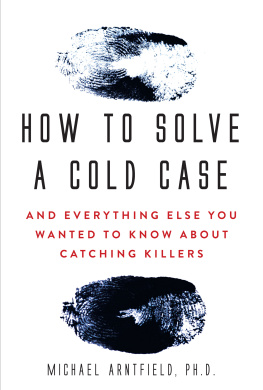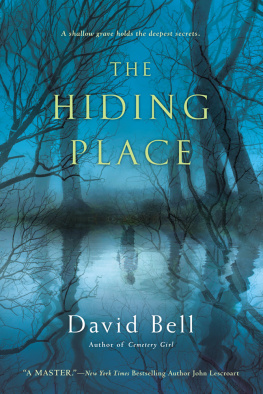
Contents


Copyright 2021 Michael Glasgow and Phyllis Gobbell
All rights reserved, including the right to reproduce this book
or portions thereof in any form whatsoever.
For more information, email
Diversion Books
A division of Diversion Publishing Corp.
www.diversionbooks.com
First Diversion Books edition, December 2021
PaperbackISBN: 9781635769180
eBook ISBN: 9781635769173
Printed in The United States of America
1 3 5 7 9 10 8 6 4 2
Library of Congress cataloging-in-publication data is available on file
CONTENTS
Prologue
A flock of white pelicans sails in a perfectly straight line across the blue sky.
Leather-faced fishermen in wooden boats cast their nets into the still, translucent waters of the lake. The chimes atop an ancient chapel peal with the music of a new morning in Ajijic, Mexico.
Perry March leaves his spacious home just before 8:00 on the bright morning of August 3, 2005, walking to the caf that he and his Mexican wife, Carmen, own. The perpetual sunshine angles its rays through the colorful windows of the shops and markets as he strolls along the cobblestone streets. At the Media Luna Bistro & Caf, a buttery yellow stucco building in the heart of the vibrant little town, Carmen is already putting out delectable baked treats for the days customers. The smell of strong Mexican coffee mixes with the scent of fresh mangos, papayas, pineapples, and guavas.
Another day in paradise.
Ajijic, a retirement haven for more than five thousand American and Canadian expatriates, is located on Lake Chapala, Mexicos largest natural lake. Surrounding the lake are villages and small towns that date back to twelfth-century, pre-Hispanic settlements by a migrating tribe of the Nahuatl Indians. The Ajijic convent was constructed in 1531, and after 350 years of an amalgamation of Indian and Hispanic cultures, Ajijic began to experience an influx of citizens from many other countries. Tourists discovered the picturesque natural beauty of the Lake Chapala region and the ideal climate known as eternal spring. In 1895 the first major hotel, The Arzapalo, opened to accommodate the growing stream of visitors. The Palacio Municipaltown hallwas constructed in 1913, and by 1930 the first railroad station was opened. Guadalajaras high society began to take the train to the Chapala lakeside for leisurely weekends and the Christmas holidays.
In 1999, the Chapala lakeside was a logical destination for Perry and his children, Sammy and Tzipi; his seventy-two-year-old father, Arthur March, had come to Ajijic in the mid-1990s. Perry knew he could count on his father to help him start over. In this land of eternal spring, Perry believed he could finally escape all his problems.
The Lake Chapala region was everything Arthur had promised. Wealthy tourists of many nationalities flocked to the bed-and-breakfasts and excellent hotels. Guides conducted tours high into the Sierra Madres El Tigre Mountains. Restaurants flourished, offering exquisite cuisine from varied cultures. The local yacht club held regattas on Lake Chapala. There were shops and open-air markets filled with busy shoppers and mariachi music. There were banks, and pharmacies, and dentists, and doctors.
Perry smelled opportunity. He joined forces with a Mexican entrepreneur and formed a diversified list of business enterprises. He married a beautiful Mexican woman with three children, and soon they added a baby girl to their blended family.
Life was good.
On this sun-splashed August morning, Perry March strolls past walled houses and colorful shops, decorated with fragrant bright flowers that drape to the ground from earthenware pots. He is in sight of the Media Luna Bistro & Caf when four unmarked cars approach at a high speed and screech to a halt, pinning him on the sidewalk.
Hey, what the hell! Perry demands, as several men jump from their vehicles and grab him. He struggles. Where are you taking me?
One of the Mexican immigration authorities tells him with a sneer, Your visa has been revoked, Senr March. You are going to the United States.
Perry protests. My wife is inside the caf. Let me tell her. Let me at least call my father! But already rough hands are hustling him toward one of the unmarked cars.
The cars speed away as an official convoy down the narrow cobblestone streets of Ajijic.
Perry March has just been arrested Mexican style.
Hour by hour, the day that began in paradise distorts into something surreal, a Dal painting. He remembers that some of Janets paintings were surreal. She was a promising artist before that night nine years ago, a bad dream that Perry has put behind him here in Mexico. Now he is floundering in another bad dream. The Mexican agents wont even let him make a call. By 9 a.m. he is in FBI custody, in the air above Guadalajaraa short plane ride that changes everything.
Perry March is used to being the one in control, always sure he is the smartest person in the room. Today he is powerless.
He is formally deported based upon a federal criminal complaint charging him with fleeing the United States to avoid prosecution. Once in Los Angeles he learns he has been indicted and charged by the Criminal Court of Davidson County, Tennessee, with three felony charges: Second-Degree Murder , Abuse of a Corpse , and Tampering with Evidence in the 1996 disappearance of his former wife, Janet March.
In the Los Angeles suburb, night comes to the Van Nuys Community Police Station. Perry sits on a hard bed, on a scratchy, musty blanket, inside his cell. It is not lost on him that hes in the cell once occupied by O. J. Simpson. The incredible events of the day begin to sink in. His arrogance falls away like discarded clothing. It is incomprehensible to Perry that his world is collapsing so suddenly, all in one nightmare of a day, since that momentjust this morning when he strolled along the street of Ajijic, the sun warm on his shoulders.
In John Miltons Paradise Lost , Michael the archangel is sent to expel Adam and Eve from paradise. Perry March is living his own epic poem of good and evil. He wonders if he will ever again warm himself in the bright Mexican sun.
Part
One

Chapter One
A Perfect Life
The lights mesmerize Perry March as he drives home from downtown Nashville along West End Avenue. Taillights from the cars in front of him form two lines of streaming red beacons, like a private runway to guide him home through the early evening dusk. It is only a fifteen-minute drive from the family law firm, Levine, Mattson, Orr, and Geracioti, to his massive new home at #3 Blackberry Road, in the affluent Forest Hills neighborhood in this Southern city, a city on the rise.
The air is crisp on this fall night in 1995. Maple and oak leaves of varying hues of red and gold litter Perrys roadway paths like confetti from a heavenly parade as he turns from West End into the private enclave of exclusive Belle Meade. He follows its divided boulevard lined with huge mansionsa display of tasteful old Nashville money and ostentatious new Nashville money, side by side.
As the end of the twentieth century looms, Nashville is doing its best to forge its own unique urban mark upon the Southern landscape, to step from behind the broad shadow of the Southeasts premier city, Atlanta. Known for decades as Music City, USA, Nashville has determined forces at work constructing the multilayered dimensions of a more urban sophistication, a citywide goal to outrun the hayseed image burned into the collective national memory by television shows such as Hee-Haw . Of course, the blue bloods of Nashville have never fully embraced or understood the music industry, which is a combination of two primary groups. There are the artists and performers, with their tour buses and cowboy hats, and there are the record producers and music executives, with their designer jeans and Porsches. Although it employs thousands and generates billions of dollars annually, the music industry has always remained a subculture within Nashville, never the power behind the urban throne.
Next page















